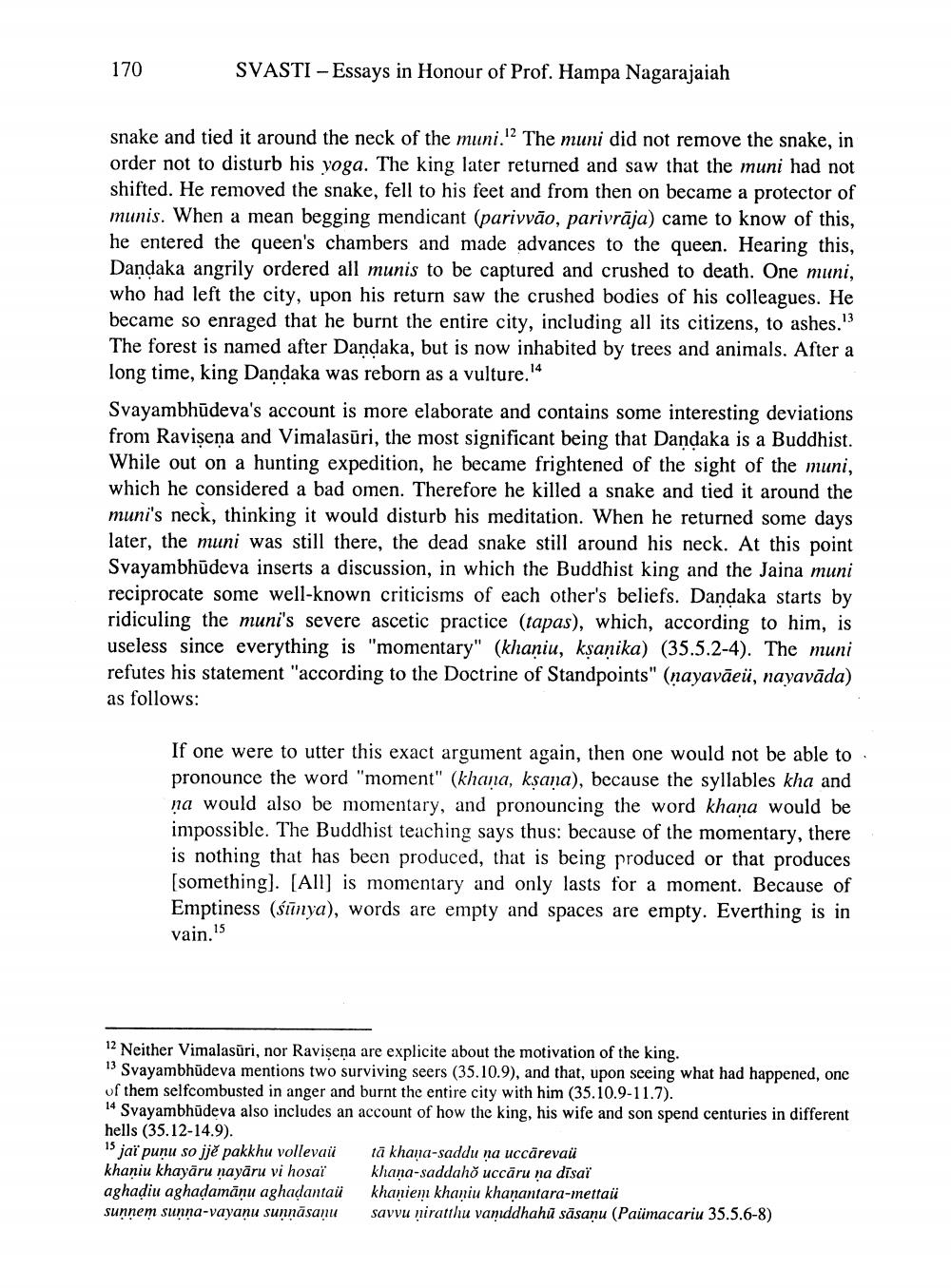________________
170
SVASTI - Essays in Honour of Prof. Hampa Nagarajaiah
snake and tied it around the neck of the muni.!? The muni did not remove the snake, in order not to disturb his yoga. The king later returned and saw that the muni had not shifted. He removed the snake, fell to his feet and from then on became a protector of munis. When a mean begging mendicant (parivvão, parivrāja) came to know of this, he entered the queen's chambers and made advances to the queen. Hearing this, Dandaka angrily ordered all munis to be captured and crushed to death. One muni, who had left the city, upon his return saw the crushed bodies of his colleagues. He became so enraged that he burnt the entire city, including all its citizens, to ashes." The forest is named after Dandaka, but is now inhabited by trees and animals. After a long time, king Dandaka was reborn as a vulture.14 Svayambhūdeva's account is more elaborate and contains some interesting deviations from Ravişena and Vimalasūri, the most significant being that Dandaka is a Buddhist. While out on a hunting expedition, he became frightened of the sight of the muni, which he considered a bad omen. Therefore he killed a snake and tied it around the muni's neck, thinking it would disturb his meditation. When he returned some days later, the muni was still there, the dead snake still around his neck. At this point Svayambhudeva inserts a discussion, in which the Buddhist king and the Jaina muni reciprocate some well-known criticisms of each other's beliefs. Dandaka starts by ridiculing the muni's severe ascetic practice (tapas), which, according to him, is useless since everything is "momentary" (khaniu, kșanika) (35.5.2-4). The muni refutes his statement "according to the Doctrine of Standpoints" (nayaväeü, nayavāda) as follows:
If one were to utter this exact argument again, then one would not be able to pronounce the word "moment" (khana, ksana), because the syllables kha and na would also be momentary, and pronouncing the word khana would be impossible. The Buddhist teaching says thus: because of the momentary, there is nothing that has been produced, that is being produced or that produces (something). (All] is momentary and only lasts for a moment. Because of Emptiness (ślinya), words are empty and spaces are empty. Everthing is in vain.'
12 Neither Vimalasuri, nor Ravişena are explicite about the motivation of the king. 13 Svayambhudeva mentions two surviving seers (35.10.9), and that, upon seeing what had happened, one of them selfcombusted in anger and burnt the entire city with him (35.10.9-11.7). 14 Svayambhudeva also includes an account of how the king, his wife and son spend centuries in different hells (35.12-14.9). 15 jaï punu so jjě pakkhu vollevaü ta khana-saddu na uccärevaü khaniu khayāru nayāru vi hosaï khana-saddaho ucсāru na dīsaï aghadiu aghadamānu aghadantai khaniem khaniu khanantara-mettai sunnem sunna-vayanu sunnäsanu savvu niratthu vanddhahū säsanu (Paümacariu 35.5.6-8)




